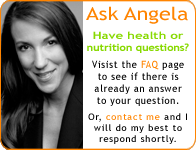Best Intentions: grocery store customer loads up basket with fresh vegetables only to discard them after a week because they’ve gone bad waiting to be prepared. Sound familiar? This may not be the literal definition, yet most can relate. To the rescue: a wide variety of frozen vegetables are just an isle away.
Yes, it’s true, we should buy fresh, organic, local and seasonal when available. But we should also be open to using frozen vegetables throughout the rest of the year. Frozen vegetables offer convenience, cheaper pricing and often higher nutritional value than their fresh counterparts. While canned vegetables lose much of their water soluble nutrients during processing, frozen vegetables are often more nutrient dense than fresh isle supermarket counterparts.
How is this possible, you ask? Frozen vegetables are flash frozen at peak ripeness which locks in the nutrient rich state. Fresh produce that has been shipped in is often picked before it fully ripens. Because of this it will never develop the full range of vitamins, minerals and phytonutrients as it would had it been left on the stock. It may appear ripe on the outside, but on the inside it will fall short of expectations.
Frozen vegetables are a fabulous way to deliver both nutritious and affordable food to your table. With prices of fresh produce on the rise many families are steering clear of the ten dollar bag of apples and moving towards lower priced convenience food. Families simply can’t afford to purchase produce with the chance that it may go bad over the week. Frozen vegetables are more affordable than their fresh counterparts because they can be purchased in bulk without the worry that they will go bad.
Here are eight beautiful reasons to eat your (frozen) vegetables!
- Frozen vegetables often have greater nutrient density than fresh due to the fact that they are flash-frozen at peak ripeness.
- They are almost always cheaper by the pound and you can buy them in bulk without the worry that they will go bad in the next week.
- They end up being cheaper in the long run because they don’t go bad in a week.
- They are less susceptible to seasonal price fluctuations.
- Frozen tastes closer to fresh than canned.
- Talk about convenience! Frozen vegetables are washed, prepped and ready to cook.
- No need to defrost. Add frozen vegetables straight into your wok, pan or soup and start cooking!
- Access to a greater variety of off-season vegetables is just a frozen isle away.
Categories: Nutrition







